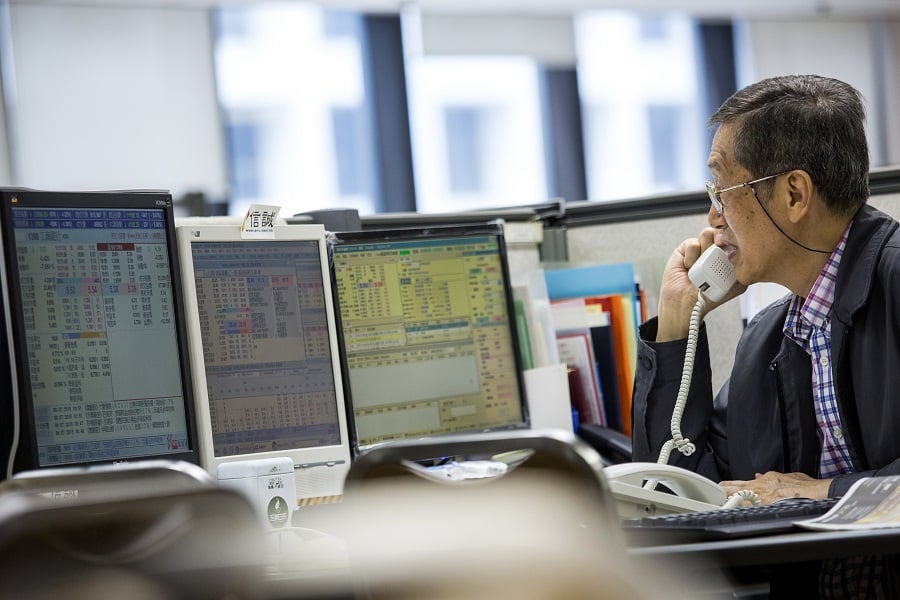U.S. investors should be embracing the Chinese stock market meltdown as a unique opportunity to catch a ride on a fast-growing, if rattled, economy.
Even with a decline of more than 22% over the past month, the benchmark CSI 300 is up more than 15% from the start of the year, and is up more than 86% over the past 12 months.
“We're looking at what's been happening recently in China as some air comes out of the markets, but it really should not obscure the fact that the Chinese equity markets have been some of the best performers this year,” said Amrita Nandakumar, ETF product manager for international equities at Van Eck Global.
No one is seriously suggesting a head-long dive into Chinese stocks, but Ms. Nandakumar and other market analysts do believe U.S. investors can benefit from a long-term commitment to the world's second-largest equity market.
For most U.S. investors, that means exchange-traded funds that offer concentrated or diversified exposure to Chinese A shares, which now can be held by foreign investors.
Some popular ETFs include MS China A Share (CAF), down 2% this year and up 42% over the past 12 months, Market Vectors China A Share (PEK), up 4.2% this year and up 69% over the past year, and Vanguard FTSE Emerging Markets (VWO), down 0.6% this year and down 8.5% over the past year.
BUY INCREMENTALLY
The upside of the recent pullback, as Ms. Nandakumar explained, is that Chinese stocks have been falling below historical average valuation levels, to a price-to-earnings ratio of 15.4, from 18.4.
“We'd say that if you're going to buy into China now, buy incrementally,” she added.
Todd Rosenbluth, director of mutual fund and ETF research at S&P Capital IQ, echoed her counsel of not getting too greedy.
“Investors need to remember that, while larger and growing faster than most, China is an emerging market,” he said. “The risks are going to be high when holding a China-focused mutual fund or ETF, but so have been the rewards lately. If the sell-off in China over the past month feels too painful then it likely was too big a weighting in your portfolio.”
The reason most market watchers have become so blasé about China's stock market pullback is because it doesn't look like a threat to the global financial markets and is likely creating new opportunities for the Chinese government to introduce more meaningful reforms that could further open the market.
“From a U.S. investor perspective, I would put this in the same category as Greece,” said David Spika, global investment strategist at GuideStone. “A lot of investors were looking for reasons to take gains, and both Greece and China have provided that opportunity.”
In terms of
what has been driving Chinese stocks down, Mr. Spika points first to the Chinese government and policies that are badly missing the mark.
DUE FOR A CORRECTION
“We're basically talking about a communist nation trying to implement free market policies,” he said. “Right now the Chinese government is just throwing things against the wall to see what sticks. The market was due for a correction and the Chinese government doesn't know what to do about it because they've never seen this before.”
So far, most of the
Chinese government's reactions to the market correction have been aimed at preventing investors from selling stocks. One of the policies has prohibited any entity that owns more than 5% of a company from selling the stock for six months.
There are also new programs designed to encourage government entities and brokerage firms to invest in the stock market, which is currently about 80% owned by individual investors.
That lopsided ownership by individual investors helped contribute to the market's run-up because a lot of Chinese investors were buying stocks on margin at levels never before seen in the history of financial markets, according to Ilya Feygin, managing director at WallachBeth Capital.
“China's outstanding margin loans is equal to about 9% of the total float, which is the largest it's been in any market in history,” he said. “And this is a system that is fairly young, because it was only 10 years ago that most of the Chinese stocks were still state-owned.”
Mr. Feygin attributed the
sudden market sell-off to a realization among less-sophisticated Chinese investors that the economic slowdown was not going to be managed by the government.
“The weak economic data was ignored because it was assumed that the government was going to be able to control everything,” he said.
And once the government started imposing restriction on stock sales, investors resorted to whatever means possible to reduce their exposure.
“We're seeing a lot of indiscriminate selling because investors want to reduce their exposure,” Mr. Feygin added. “Not allowing people to sell stocks is not a way to stabilize markets. It just makes things worse because people are going to sell whatever they can sell.”
The general market sell-off, he added, has created some buying opportunities in areas such as metals, precious metals, materials, energy and industrials.
“I think the parabolic move is over,” Mr. Feygin said. “I do think we'll get a bounce and I think U.S. investors should take this opportunity.”







